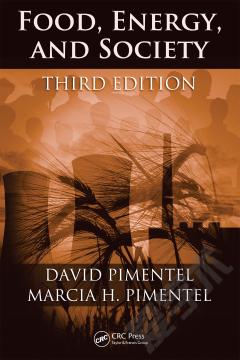People, Food and Resources
The current problems of sub-Saharan peoples who are subject to recurrent famine and shortages of food are only one facet of a wider problem which confronts the peoples of the world. This problem, which is a vast in scale, concerns the relationship between the physical and biological resources which the world can muster and the provision of food for the adequate nutrition of its peoples. Overshadowing much of the thought about the future is the theorem propounded by Malthus almost 200 years ago, namely that population, unless checked in some way, has the capacity to outstrip the productivity of the earth in supplying food. Malthus' views are examined in this 1986 book and estimates are made of the need to increase and the possibilities of increasing both the nutritional status of the world's population and the production of food and other essentials. The enormous dilemmas that face mankind, the economic arguments that, while apparently logical, pose large moral questions, and the possible role of new scientific advances are outlined.
{{comment.content}}








 京公网安备 11010802027623号
京公网安备 11010802027623号